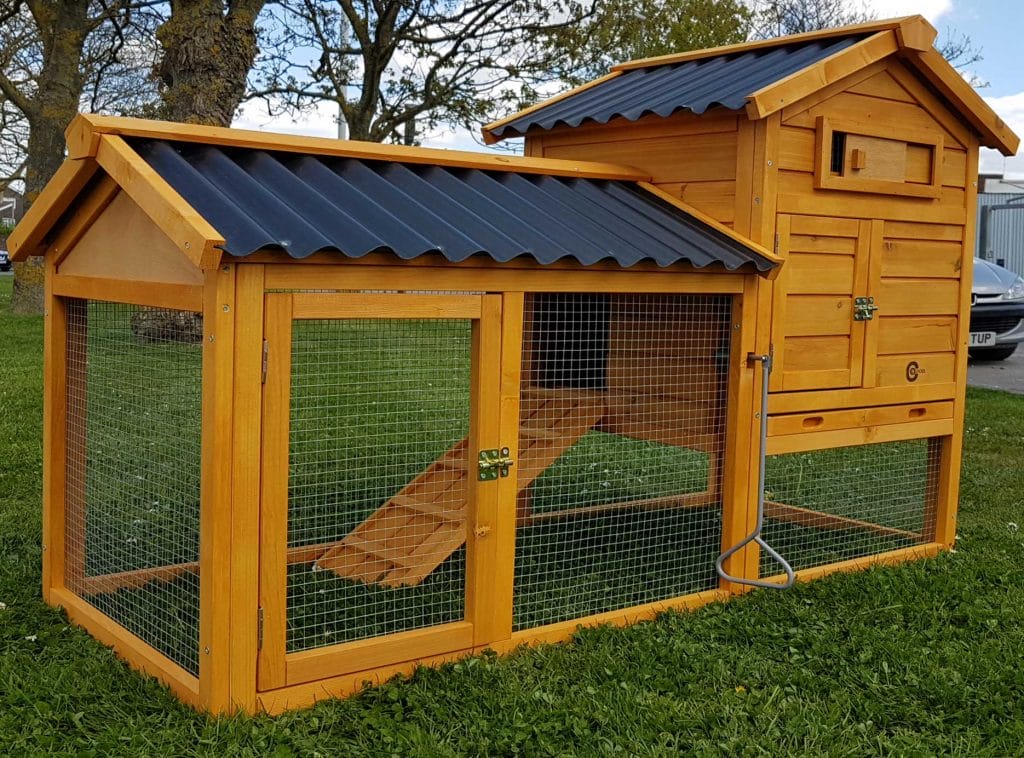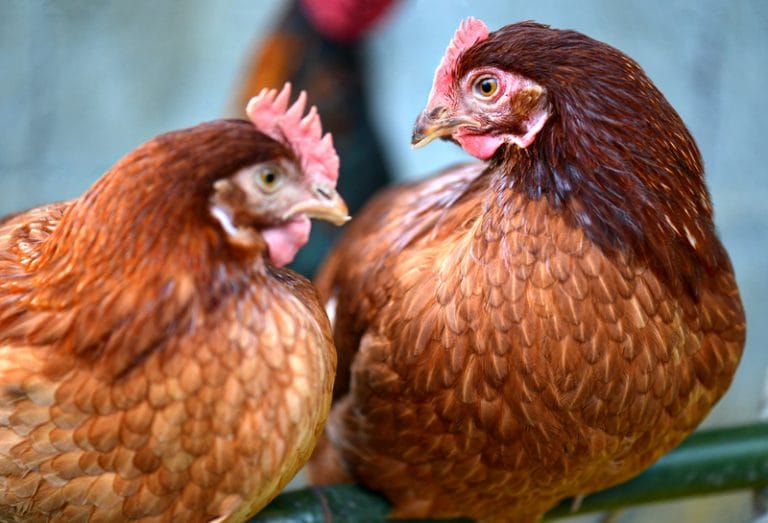This entry was posted on 26 February 2021 in Keeping Chickens.
Chickens are incredibly healthy birds. Give them the right care, and they hardly ever get sick. Numerous chicken owners keep a flock for years without ever losing a hen to disease. That said, chickens are susceptible to several illnesses, and many are exceptionally contagious, which can lead to the loss of a flock, fast.
The secret to chicken health is to offer them a sanitary place to live, top-quality food, fresh water, and quarantine from pathogens.
Here’s all you need to know when it comes to your chicken’s welfare.
Each month, you should ditch old bedding and replace it with fresh, new material. This will help prevent the build-up of parasites, mould, and ammonia, in addition to a raft of diseases, ranging from parasitic infections to a fungus in the hen’s feet. Sanitising your bird’s coop regularly can also aid in holding off infection-carrying pests and rodents.
Exposed wood and continued moisture can lead to wood rotting and losing its durability over time. In turn, this leads to safety issues for your birds and also means you’ll need to replace the damaged wood. Maintaining your chicken coop regularly protects your chickens and gives them a safe space to rest, free from disease.
A good way to make your chicken coop waterproof is to use a water-resistant sealant. You can purchase this in paint form (similar to the paint you’d use on your chicken coop’s exterior) or wood sealant (one you may use on the wood of decking).
Just as important as weather-proofing a chicken coop is maintaining your bird’s waterer and feeder.

You can improve the welfare of your chickens by keeping their coops clean. To prevent disease, spend some time every day scooping out droppings and discarding loose feathers. If damp litter is left, this creates the perfect breeding ground for viruses, parasites, and bacteria.
Here’s how you can clean a chicken coop effectively:
To stop the onset of chicken infections, parasites and to help keep hens happy and healthy, practice good cleanliness and biosecurity.
Biosecurity means ‘health and hygiene’. As a chicken owner, it’s essential to know all there is to know about biosecurity. The key purposes of biosecurity are to aid in lessening the spread of chicken disease and to safeguard your birds from getting sick.
Here are some tips on how you can stop pests or diseases in chickens:
If your neighbours have birds, don’t share garden items or supplies with them or other chicken owners. In the event you do bring equipment home, sanitise and disinfect them thoroughly before returning to your property. Your hens shouldn’t come into contact with ducks, geese, and wild birds, as they can transmit diseases and bugs. Also, ensure there’s a roof covering your chicken runs.
Make sure you wash your hands before and after tending to your chickens. Ensure you’re wearing clean clothes and that you disinfect your shoes before working with your hens. Sterilise and sanitise all apparatus, including tools and cages that are used by your chickens and come into contact with their faeces. Discard manure before sterilising apparatus and dispose of dead chickens correctly.
You must quarantine new chickens returning to the flock for a minimum of 30 days. The quarantine area must be in an independent building from your coop and as far away from it as possible. Nothing should come into contact with your chickens or their coop. For instance, if your hens have visited an exhibition or fair, don’t let them near your flock for at least 30 days following the event.
It’s important to know the symptoms of chicken disease as soon as possible, as early detection can help enormously.
Indications a chicken may be ill include:
When rearing chickens, it’s important to keep them healthy and happy. So, make sure your biosecurity is up to the required standards.
Any chicken owner wants their birds to be happy and healthy. To protect your chickens from disease, you need to install a high-quality chicken coop where they can live safely. Discover a chicken coop that ensures your chicken’s welfare and health by exploring the high-quality coops we offer.
